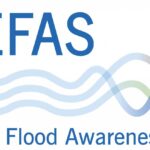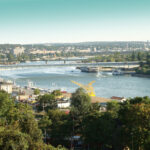Ivan Zavadsky has chaired the Secretariat of the International Commission for the Protection of the Danube River (ICPDR) for nearly a decade. As the incoming fourth Secretary General, Birgit Vogel took over the leadership of the international water organisation on the 1st of August 2022. The first visit of the new executive Secretary’s was to Hungary. The Secretary General, who took office at the beginning of August 2022, made an introductory visit to the Ministry of the Interior and the National Directorate General for Water on the 6th September 2022. Katalin Bihari, the Deputy State Secretary for Foreign Economic Development, received the delegation at the Ministry of Foreign Affairs and Trade, as the Deputy State Secretary is responsible for the water diplomacy of Hungary and for the government’s tasks related to the European Union Strategy for the Danube Region (hereinafter: EUSDR). Dr. Viktor Oroszi, National Coordinator of the EUSDR, and Balázs Horváth and Dr. László Balatonyi, Hungarian coordinators of the priority areas Water Quality (PA4) and Environmental Risk Management (PA5) were attended at the meeting.

The parties reviewed the areas of joint cooperation, the main priorities and results of the 2019 Hungarian presidency of the ICPDR, and also the related current tasks (such as drought as a major water management issue, further strengthening of cooperation between the Tisza countries, plastic pollution of our waters, or the application of the Danube accident forecasting system).
The basis of cooperation between the ICPDR and the Hungarian-led PA4 and PA5 of the EUSDR was laid down in a joint document signed in 2014 to exploit synergies. Since then, ICPDR and EUSDR PA4-5 experts have mutually participated in each other’s expert meetings. Several international projects have been/are being implemented through ICPDR and EUSDR PA4-5 cooperation.
The EUSDR Hungarian coordination supported the preparation and implementation of the Danube Sediment and JOINTISZA projects, which are supporting the Danube sediment study and the cooperation in the Tisza, with the involvement of ICPDR. In relation to the protection of migratory fish, the MEASURES project and the 2021 information brochure for PA4 and this year’s study on the effects of noise and vibration from ships can be mentioned. The ICPDR and PA4 organised a joint conference on the status of sewage sludge management in the Danube region in 2021, and the Danube Hazard m3c project on the spread of hazardous pollutants and the Tid(y)Up project on plastic pollution in our waters are currently being implemented. We also aim to help extend existing studies on sediment management, Danube water balance calculation and plastic pollution.
The DAREFFORT project, prepared by PA5, supported the development of the ICPDR Danube Hydrological Information System (Danube HIS), and a joint agreement was reached this year with the EU Joint Research Institute for the organisation of the biannual Danube Forecast Forum for the next 6 years (PA5 funded in 2023). In addition, an international project on risk assessment of reservoirs is under preparation with the ICPDR Accidental Pollution Working Group (APC EG). For disaster management interventions against flood damage, the DAREnet project and the EUSDR PA5 Disaster Management Working Group exercises in 2019 and 2022 are good examples.
At the end of the meeting, the parties mutually assured each other that the existing close cooperation will continue in the coming years.
Background information:
The ICPDR was established in 1998 with its headquarters in Vienna and its main objective is to implement the objectives of the Convention on the Protection and Sustainable Use of the Danube River, adopted in Sofia in 1994. The ICPDR is the main platform for the implementation of the EU Water Framework Directive, the transboundary aspects of the EU Water Framework Directive and the Floods Directive. The ICPDR has 7 permanent expert working groups and the ICPDR Tisza Group chaired by Hungary and Romania.




